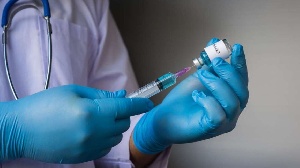On December 18, the Speaker of the Ugandan parliament announced the succumbing of yet another member of the house to Covid-19. The news elicited polite expressions of regret but did not appear to shock anybody.
That is not completely unexpected. Across East Africa, the rampant number of both high profile official and undocumented Covid-19 deaths in the community, has dulled the senses and normalised what should otherwise be the biggest public health emergency of our time.
Despite the current excitement in the west following the start of large-scale public vaccination programmes against the flu, the public policy sphere in East Africa, is uncharacteristically quiet about what next. Not a single government in the region has elaborated a coherent plan for the acquisition, financing and distribution of a Covid-19 vaccine to citizens. The thinking appears to be that being among the last in the queue, there is ample time. With the approval of a second vaccine this week, that can change dramatically.
Instead, governments which continue to lament the economic fallout from the pandemic appear to have surrendered leadership on vaccination to international bodies, whom they somehow expect to put the pieces together. The silence of the governments does not mean that there is nothing going on. It is just that the culture of lack of accountability and looking at citizens as objects of official charity is pervasive.
Behind the scenes, the World Health Organisation in November sent out a vaccine readiness assessment tool to the 47 countries in its African cluster. It was an attempt to prod governments into planning early for introduction of the Covid-19 vaccine. While cash-strapped governments appear to be pre-occupied with the lack of money, it might be the least of their problems.
The delicate nature and relatively short lifespan of the available Covid-19 vaccines requires elaborate preparation before a successful vaccination programme can be mounted. Many African countries have been running a couple of childhood immunisation campaigns but none of these compares to what it will take to inoculate huge sections of a sometimes reluctant and suspicious adult population.
Among the ten key areas that the WHO has identified, funding comes in at a distant third. Planning and coordination of how the vaccination programme will run, developing vaccine specific regulations, service delivery models that ensure that those who need the jabs get them with minimal inconvenience and training and supervision are indispensable.
A survey conducted in 15 African countries by the Africa Centres for Disease Control provides some interesting insights about vaccine perception in the general population. While 80 percent of respondents would be willing to take a Covid-19 vaccine if it became available, safety was a key concern for respondents. Even more interesting is the fact that acceptance was not uniform across the survey sample. Compared to a 94 percent acceptance level in Ethiopia, only 59 percent of respondents in the DRC in the DRC would accept the jab.
With a few exceptions, the relationship between the state and citizen in East Africa is strained. This has largely contributed to the failure of Covid-19 containment measures.
If they are to expect even a modest degree of success in the coming vaccination campaigns, governments need to become more open now and keep citizens in the loop about their national Covid-19 vaccination plans.
Africa News of Sunday, 20 December 2020
Source: theeastafrican.co.ke













